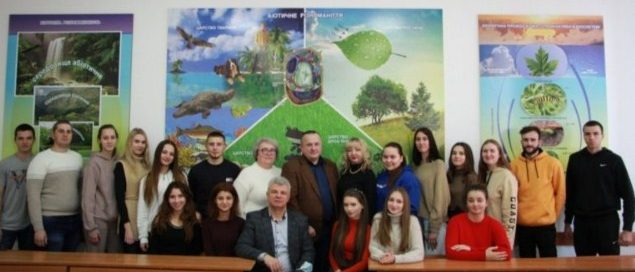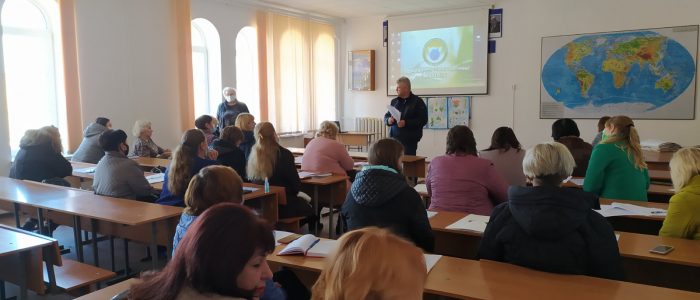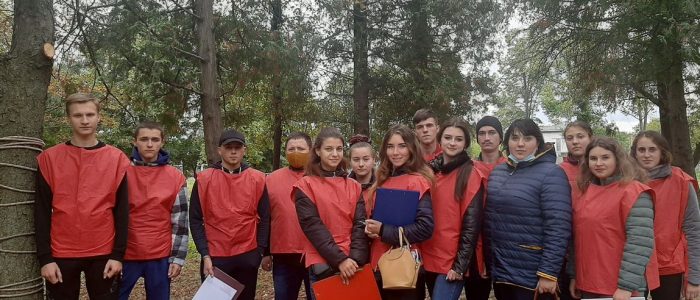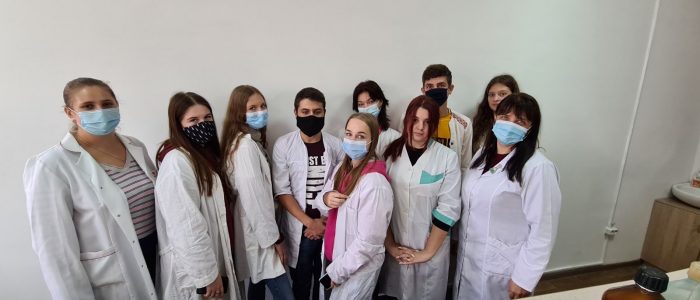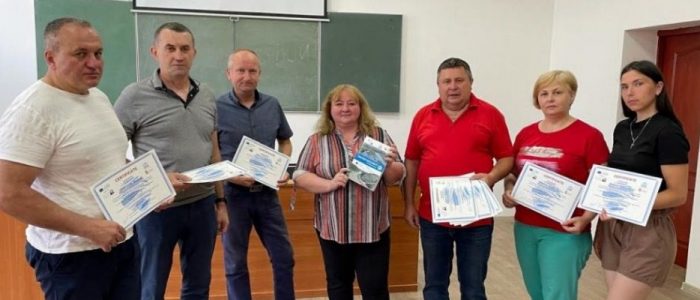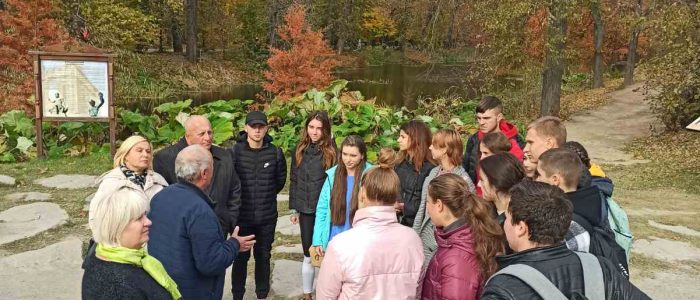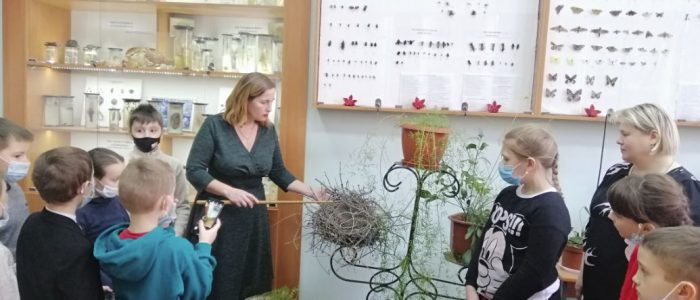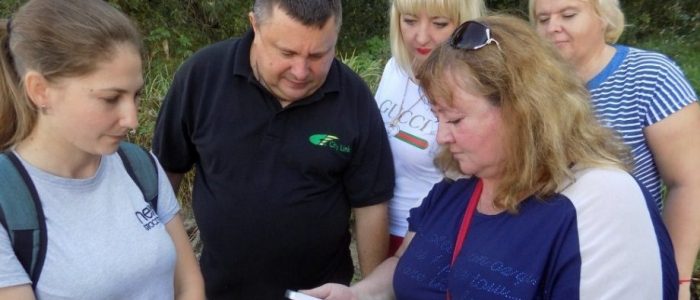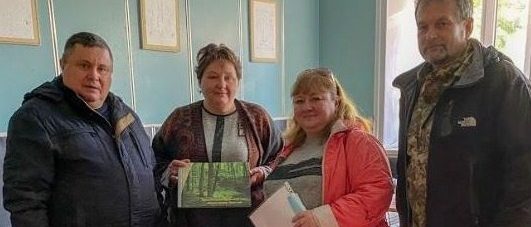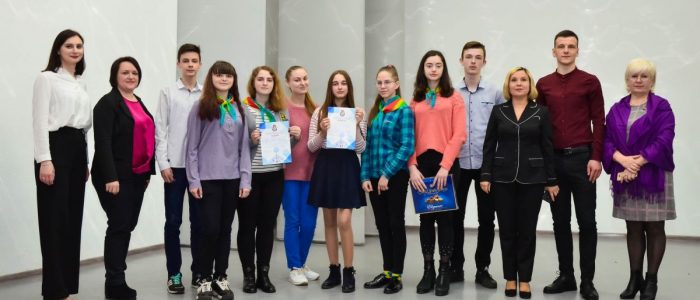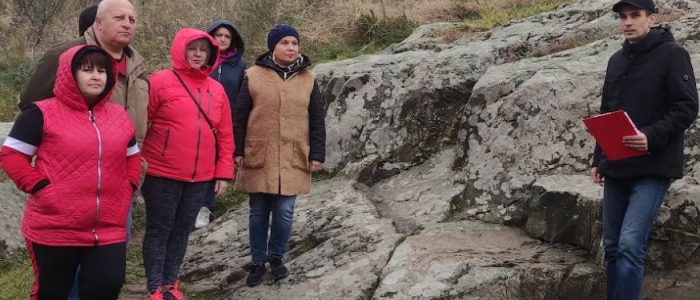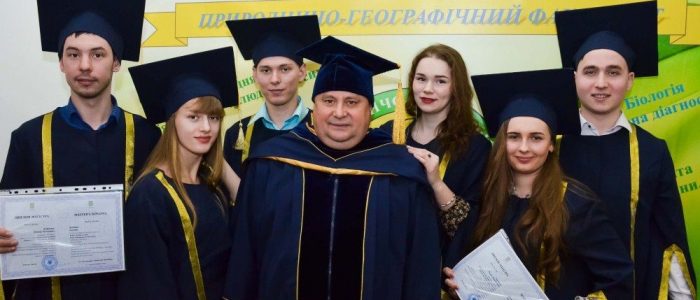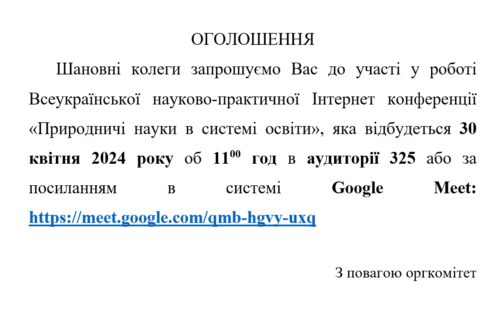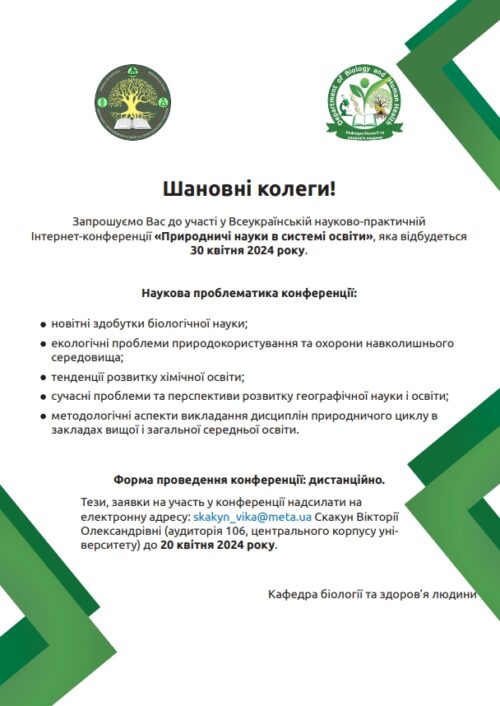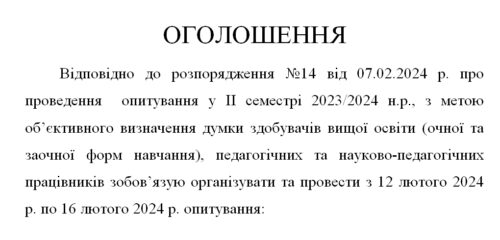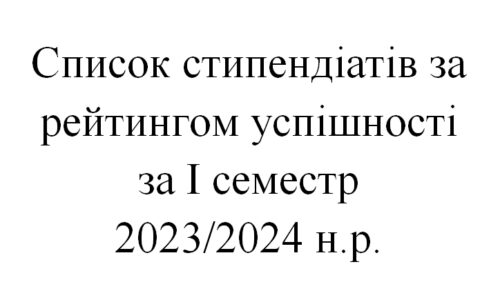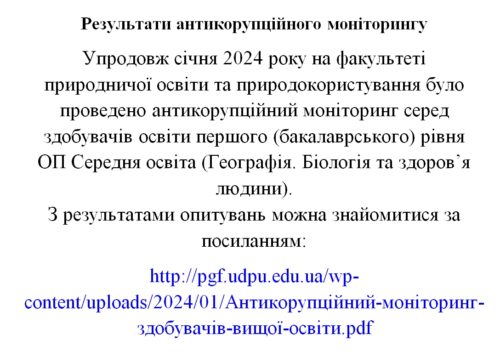Training directions 6.040101 «Chemistry»
Appropriated qualifications
Chemistry teacher
Qualification level
bachelor (higher education first cycle)
Special enrolling dictates
Absent, enrolling is being conducting by the general dictates
Special documents on previous education (formal, informal, unofficial)
absent
Program’s profile
«Chemistry » course’s students receive necessary knowledge by three discipline cycles: Humanities and Social and Economy training; Mathematical, Natural training, professional and practice training. Specialists on Chemistry have all requested knowledge in the Chemistry subjects cycle, Pedagogy, and Psychology for the work in different types of educational establishments. Except of theoretical training students have practical training during different educational and pedagogical practice, receive experience of scientific investigation conduction during course and qualification work writing.
General educational program amount is – 240 ECTS credits. where Humanities and Social and Economical training– 24 cr., Mathematical, Natural training– 56 cr., professional and practice training– 160 cr.
Educational key results
1. Knowledge on the subject
– Skills to use knowledge and skills in the area of theory and practice of chemical investigations for theoretical fundamentals and chemical methods mastering.
– Skills to use professionally profiled knowledge and practical skills in the area of General, Analytical, Physics, Organic Chemistry, Highly molecular compounds and Colloid Chemistry for Chemical processes investigation.
– Ability to use theoretical knowledge and practical skills for fundamentals of theory and methods of chemical investigations mastering.
– Ability to use mathematical knowledge for theoretical basement and practical use of chemical methods mastering.
– Ability to use professionally profiled knowledge in Mathematics (Mathematical statistics) for statistic processing of experimental data and chemical phenomenon and processes mathematical modeling.
– Ability to use professionally profiled knowledge and skills in the area of fundamental chapters of Chemistry for chemical phenomenon and processes investigation.
– Professionally profiled knowledge and skills in the area of theoretical basement of Informatics and practical use of computer technologies.
– Professionally profiled knowledge and skills in the area of theoretical basement of Informatics and practical use of computer technologies while Chemistry teaching.
– Sequence of educational material studying; scheme of lessons analyze; ways of work on report, summary, press release; logic base and thinking direction while using different methods of proof; progressive pedagogical experience.
– The newest investigations in didactics, methods of training, in aim to advance the work with different levels of training students.
– Ways of students group management on lessons; means of pedagogical influence; methods of self-reliant and individual work.
– Program means using for professional problems solving.
– Methods of Mathematical and Statistics analyze of Biological investigations results.
– Previous comparative results of field investigations calculation.
2. Cognitive knowledge and skills in subject area
– The ability to use professional and profile knowledge and practical skills on fundamental disciplines into pedagogical activity.
– The ability to use knowledge and understanding for qualitive and quantitative problems solution in Chemistry.
– To use proper methods and means of educational material presentation for its effective mastering; to have special discussion with students about manner of behavior, organize extra classes on Chemistry, to find means of influence on students and to pass right decisions; to realize intersubject relations and to secure completion of demands for students’ chemical training.
– To select, analyze, systematize, and structurize educational material; to choose and use necessary methods of training reasonably,; to organize and to lead educational process.
– To analyze own and colleagues’ experience; to use sources of information in order to find new knowledge, to compare own experience with pedagogical theory, to analyze lessons; to use different methods of proof in the process of education.
3. Practical skills on subject area
– Skills to use special program insuring for laboratory and practice lessons conducting.
– Capability to work with laboratory instruments and devices
– Fundamentals of methodological work on specialty; information and scientific and methodological materials producing.
– Ability to realize Humanistic ideas of native and foreign Pedagogy.
4. General knowledge and skills
– Ability to use knowledge into practice.
– Calculation skills.
– Ability to communicate in oral and writing forms in Ukrainian language.
– Capacity of self-education and professional development continuing.
– Ability to interact with other people, ability to work in groups.
– Ability to organize self activity and effective time- arrangement.
Graduates’ professional profiles and examples
Specialist is able to do such professional work: Chemistry teacher; Informatics teacher
Access to further education
Bachelor on direction 6.040101 «Chemistry» gives the opportunity to continue education on the second cycle (specialist or master’s degree holder) on specialties: 7.04010101 Chemistry. Specialization «Informatics».
Statements on exams, evaluation and marks
Temporary statement on knowledge evaluation and students rating determining due to the credit-module system of educational process organizing.
Graduation requirements
Fulfilled educational program in amount of 240 credits, successfully taken state exam; defended bachelor qualification work.
Form of studying
Day-time
Structural logic circuit 6.040101 undergraduate Chemistry
Brunch of knowledge 0401 Natural Sciences
Training direction: 6.040101 Chemistry
Specialization: Informatics
Module codeDisciplines list
